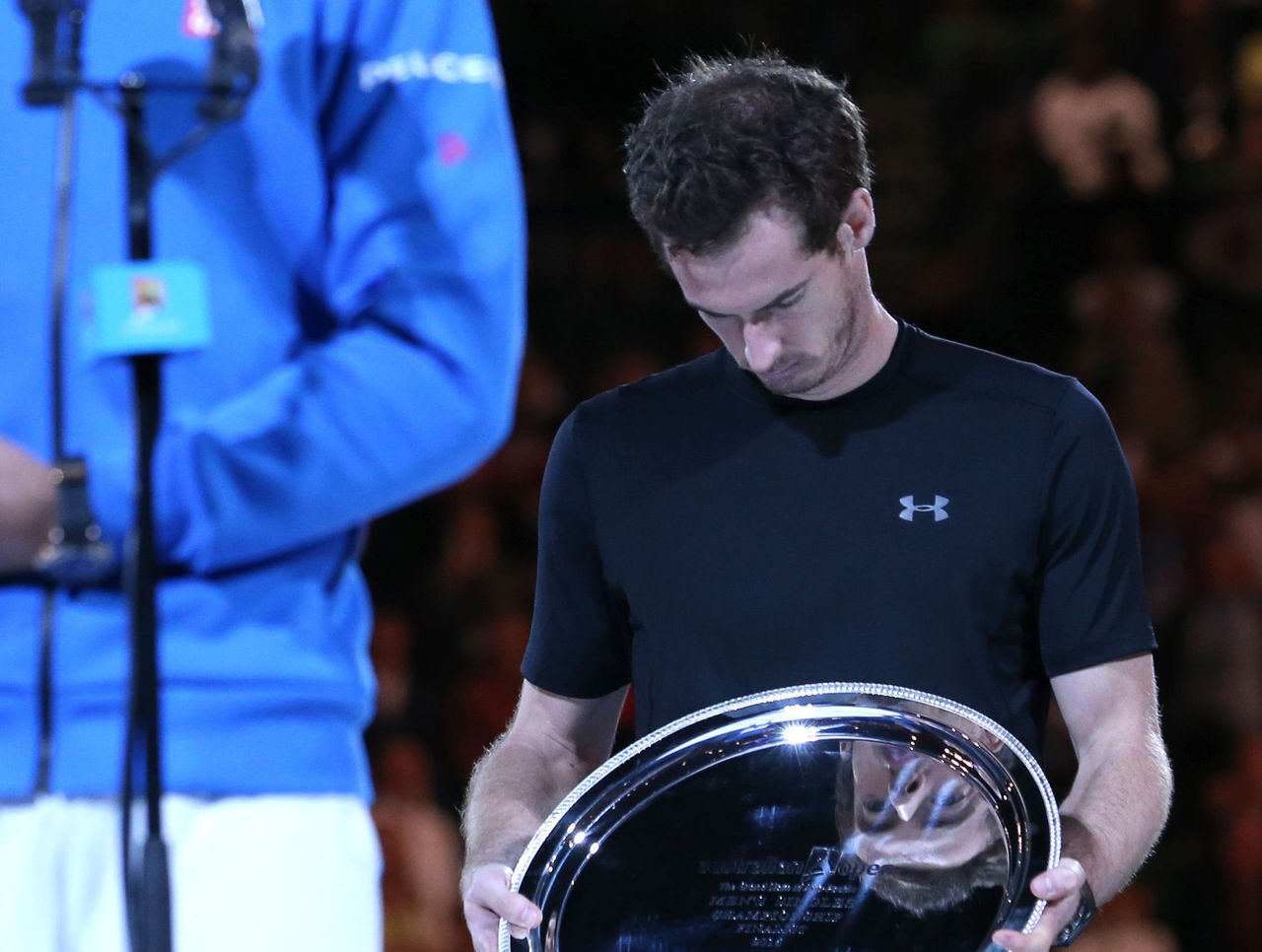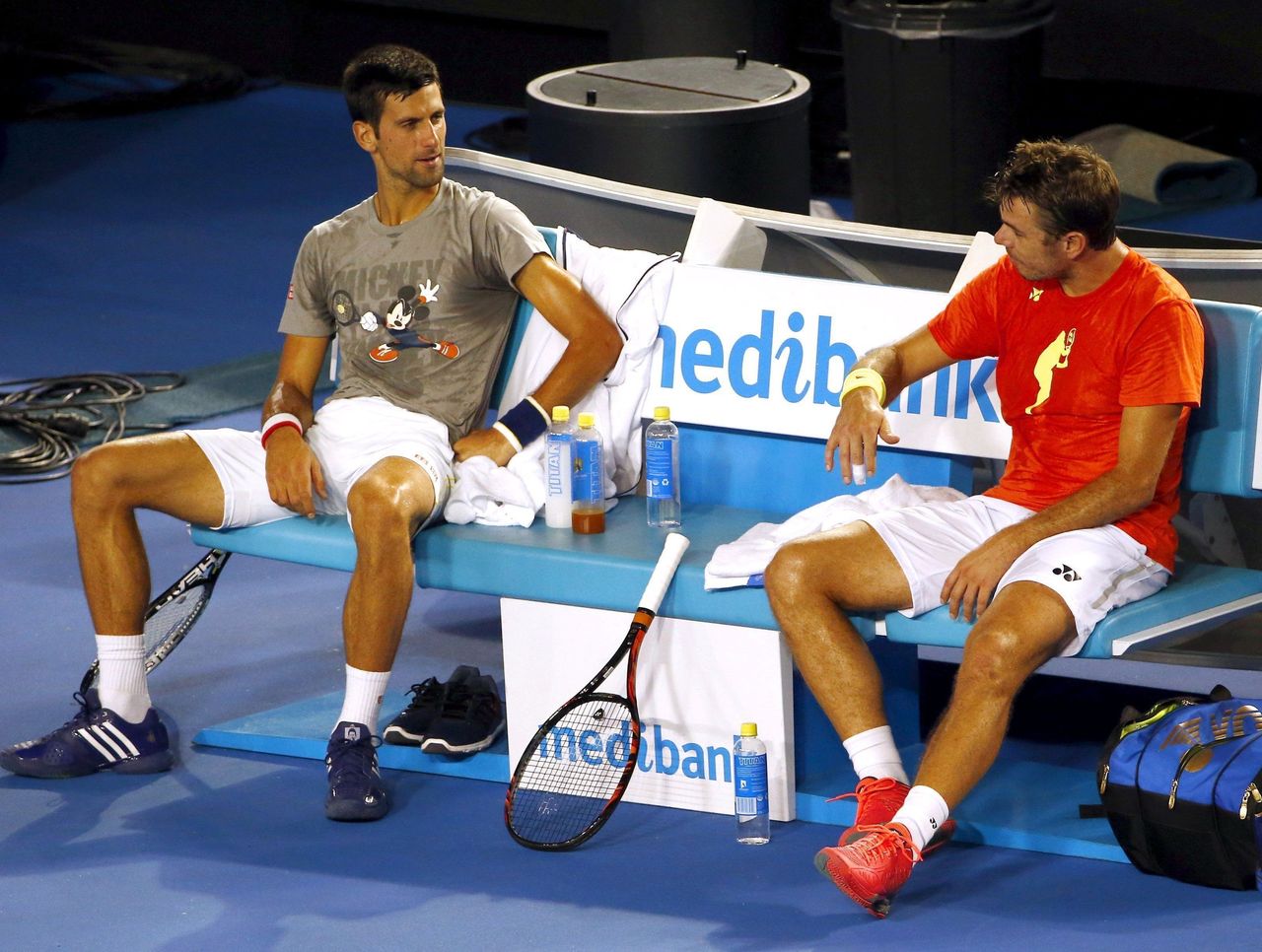All Djokes aside: Is the Australian Open a one-horse race?
The thing about Novak Djokovic is that it's become impossible to talk about men's tennis without talking, in some way, about him. Because when you speculate about who will win a big tournament, you're essentially asking, "Will Djokovic lose?" Every tournament he played last year from the Australian Open onward was won either by him or the man who beat him.
So there's a sense of fatalism to previewing the 2016 Australian Open, which kicks off its main draw Sunday. You can unpack any number of ostensibly intriguing storylines, but all feel a bit superfluous. With apologies to Aussie legend Lleyton Hewitt's swan song, Stan Wawrinka's recent penchant for Melbourne magic, the manic glory of Nick Kyrgios in front of a hometown crowd, Andy Murray’s perennial bridesmaid status, the start of Rafa Nadal's fork-in-the-road season after a sobering 2015, Roger Federer's continued defiance of Father Time, and everything else that should help make the year's first major a delight, the Djokovic question dwarfs them all.
The world No. 1 has won the Aussie Open a record five times, including in four of the past five years. He's never lost a final in Melbourne. He's never even lost a semifinal there. He's better than anyone on any surface, but it's on slower hardcourts that he can most effectively shrink the court, extend points, and turn every match into a mental and physical war of attrition.
The once and future also-rans

There are still a handful of guys who should theoretically be able to push Djokovic, if only that.
There's Federer, who accounted for three of Djokovic's six losses in 2015, and remains his most realistic challenger. The two were drawn in the same half, setting up a potential semifinal clash. But Federer isn't immune to the first-week letdown - as he showed last year by losing to Andreas Seppi, who he is otherwise 13-0 against, in the third round - and has failed to make the final in Australia since 2010, his longest drought at any Slam.
There’s Murray, who played possibly the best tennis of his career last season, only to come up empty-handed at the majors - though he did beat Djokovic in the finals of the Montreal Masters and push him to five in the French Open semis. Murray has made - and lost - four Aussie Open finals. Djokovic has beaten him in three.
Milos Raonic looks to be in peak form, with his fearsome serve and forehand - not to mention his vastly improved net play - making him a real threat. Still, his raw power has never really dented Djokovic’s armor, and he's lost all five head-to-heads the two have played.
Nadal might be hopeless at this point, honestly. There was a time when he could beat Djokovic at his own relentless game of wills. But he can't do that with this version of his forehand, which simply isn't the weapon it once was. He leaves it short far too often, and can no longer consistently fall back on the running down-the-liner that allowed him to turn defense to offense so effectively. He's lost nine of his last 10 matches - including the last 11 sets - against his longtime (former?) rival, and on hardcourts it's been no contest.
Novak Djokovic's last 11 sets on hard courts against Rafael Nadal:
6-3 6-4 6-3 6-4 6-3 6-3 6-2 6-2 6-3 6-3 6-1
https://t.co/FXSoLum0tn
— Carl Bialik (@CarlBialik) January 9, 2016
Wawrinka, who went supernova to topple Djokovic at the French last year (the only thing that separated Djokovic from the calendar Slam), might have the best shot. He's one of the few guys capable of hitting through Djokovic, and when his massive groundstrokes start finding the lines instead of the doubles alleys, his surging belief makes him a totally different animal. He's accounted for two of Djokovic's last four major losses (including his only Aussie Open loss since 2010), and seems to catch lightning in a bottle a couple times a year. It's tough to count on this being one of those rare occasions, but it's happened in Melbourne before.
Changing the game
Here's what those would-be giantslayers are up against: Djokovic has made the finals of the last 16 (!!) tournaments he's played, winning 12. He won 31 matches against top-10 opponents last year, seven more than any other player in any individual season in history. He's already won his first tournament of 2016 (in Qatar, where he suffered one of his lone hiccoughs last season) without dropping a set and by eviscerating Nadal in the final. Over the past year-plus, he's arguably been playing the best tennis ever played by anybody.
The obvious downside to the isolated thrill of witnessing history-in-the-making, is that, in a macro sense, it can sap drama. If Djokovic ends up hoisting the trophy at fortnight's end, it'll be easy to feel like the outcome was preordained, the whole tournament academic. But until that comes to pass, the twinge of inevitability will, in its way, also raise the stakes. You don't get a moment like Wawrinka's gobsmacking upset in the French Open final, or Roberta Vinci's jaw-dropper over Serena Williams in last year's US Open semis, without having a worthy king or queen.

And what makes Djokovic a worthy king isn't just that he's historically good, it's how. How he can elevate the quality of a match, even when he's playing far below his usual standards, by dialing down the risk and essentially refusing to beat himself; how he hits defensive shots that still land deep enough to make his opponents uncomfortable; how he can turn being back on his heels into an advantage, with lobs and passers and dipping shots that somehow always seem to catch his opponent in the wrong spot.
In short, putting the ball back in play is a low-percentage proposition against Djokovic. He's so steady, so precise, so versatile, so impenetrable, that the only real blueprint for out-dueling him - in a match, in a set, in a game, in a point - is to go for broke and hope to turn up a winner; to aim for the outsides of lines, reach back for something extra on serves, and kill points at the slightest opportunity; to try, again and again, to hit the perfect shot. It's not just that everyone on tour is chasing Djokovic, it's that he's forcing them to reconsider the very physics and metaphysics that govern the sport.
You can root against Djokovic, or dislike him, or gripe about the relative ennui of watching him surgically dismantle his challengers. But you really can't ask more of the incumbent king than to force everyone around him to up their games.
The safest prediction for the 2016 Australian Open is that Djokovic will win it. The next safest is that the quality of play at the tournament will be higher, across the board, because of him.